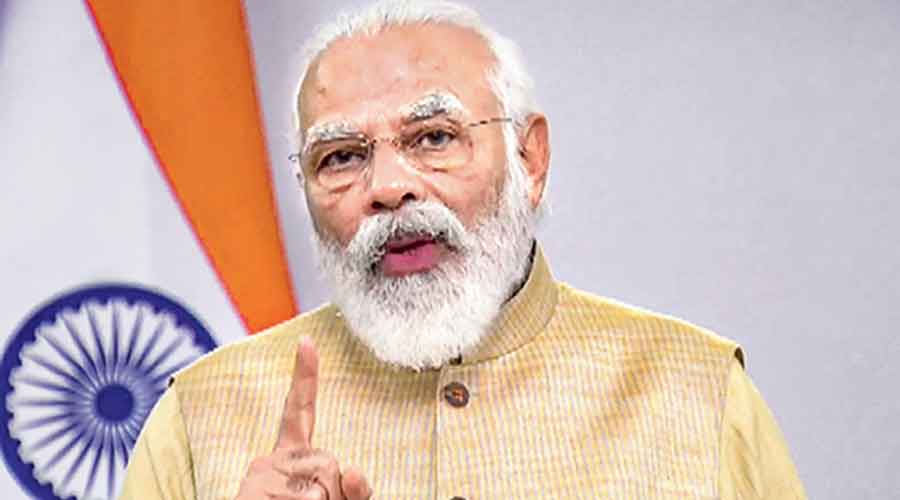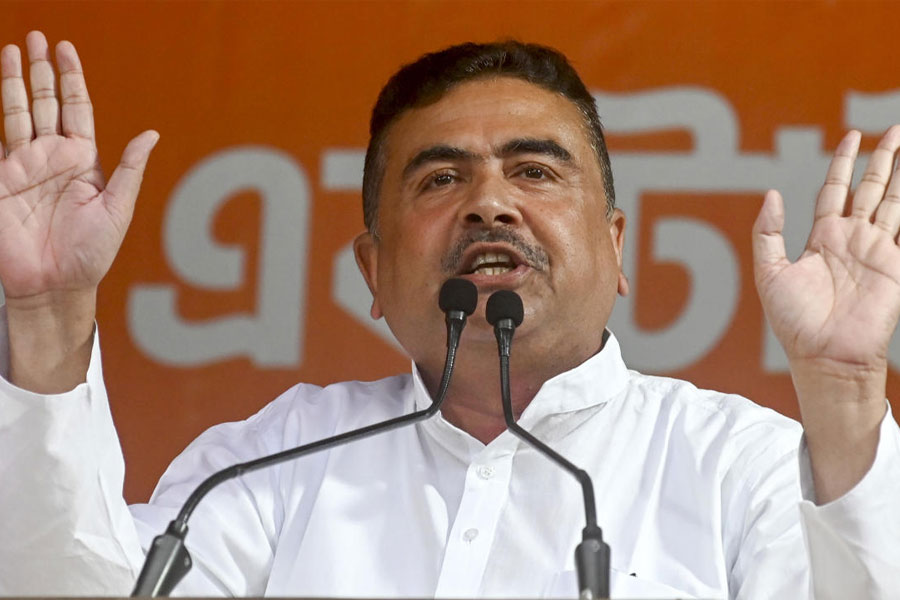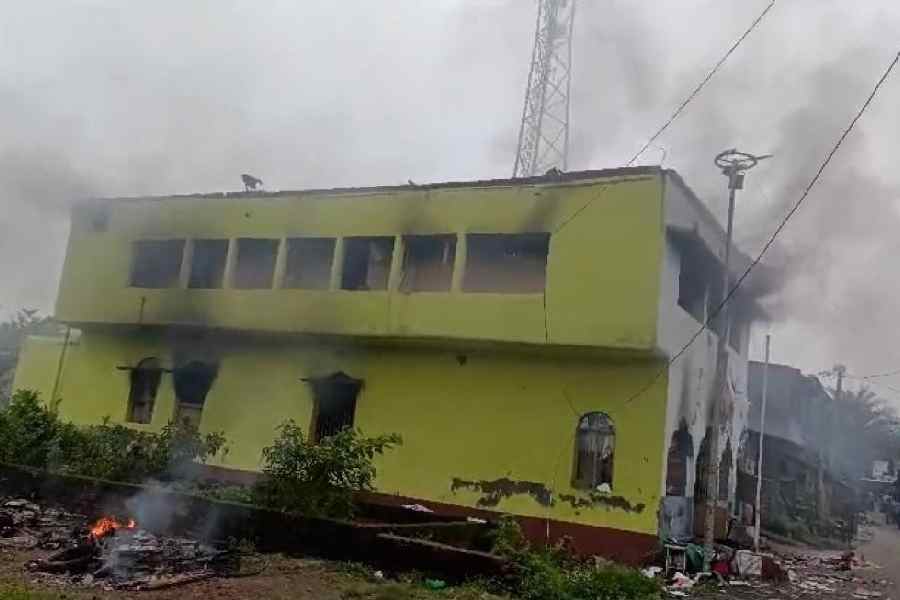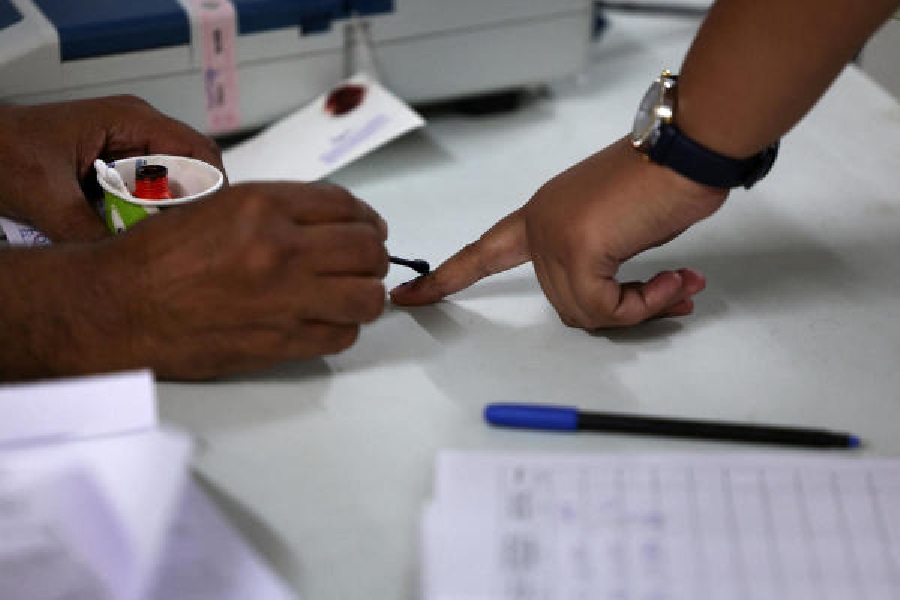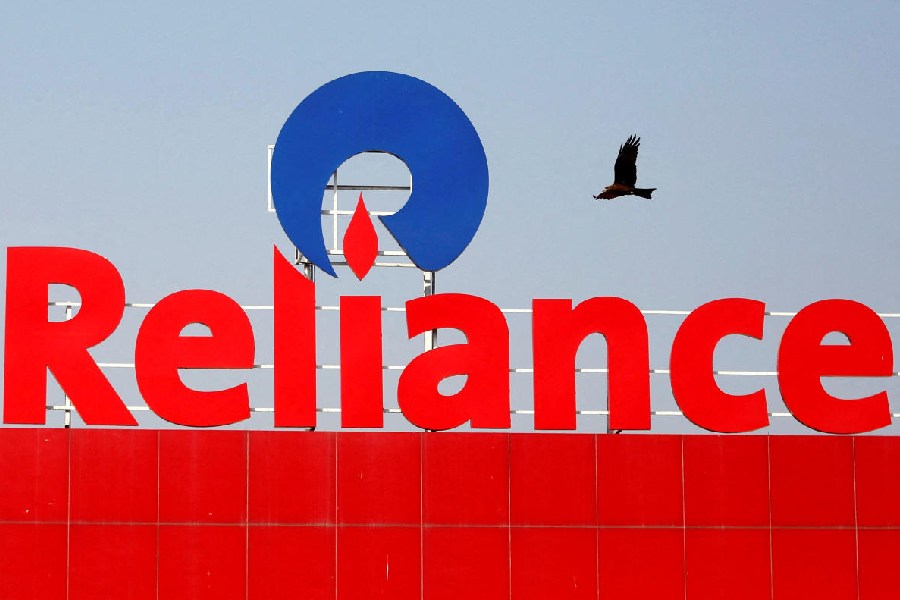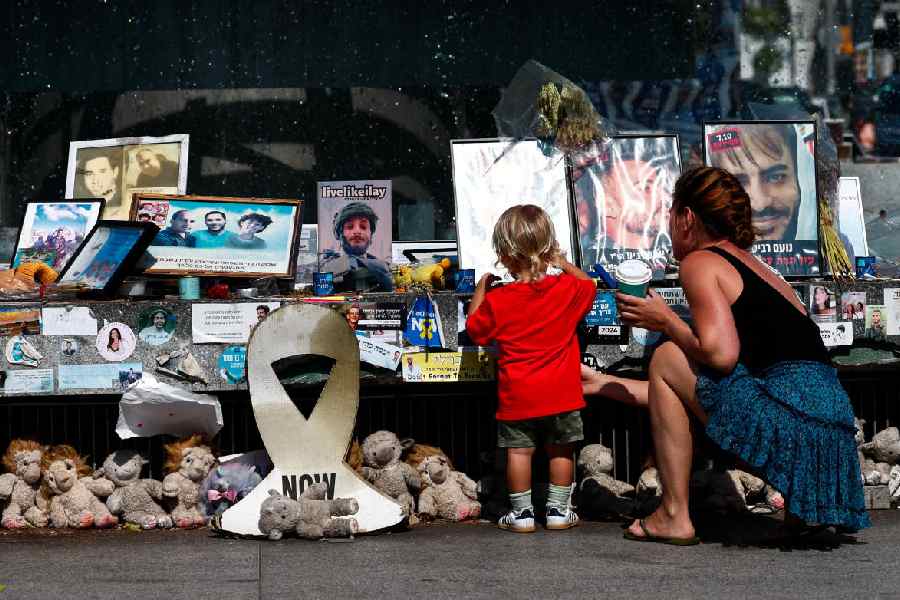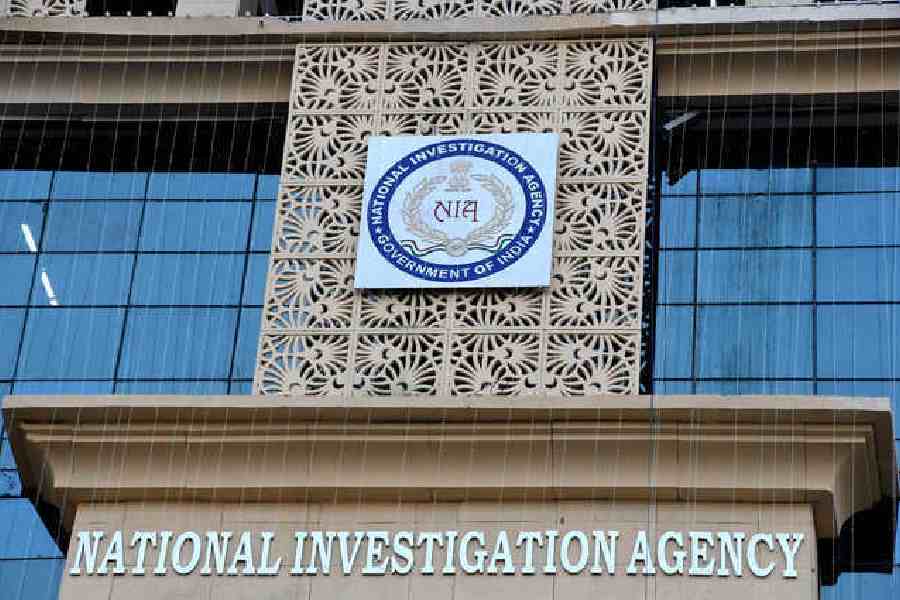Prime Minister Narendra Modi on Friday sought to conjure up the spectre of “rioters and history-sheeters” calling the shots in Uttar Pradesh if the “fake and dynastic Samajwadis” came to power, in the process baring the BJP’s jitters over a closely fought election as Akhilesh Yadav mounts a spirited challenge.
Addressing voters spread across districts of west Uttar Pradesh virtually, the BJP’s election talisman appeared to be falling back on a campaign strategy similar to the one he had adopted in Bihar in 2020 — of spooking voters with visions of lawlessness. The JDU-BJP combine had managed a slender victory over the RJD’s Tejashwi Yadav and his allies after many had predicted a regime change.
In Uttar Pradesh, the BJP is believed to be facing a tough challenge from Akhilesh of the Samajwadi Party and his smaller partners. Like in Bihar, Modi is seeking to instil the fear of a “gunda-raaj” in the minds of voters reeling from price rise and joblessness.
“Paanch saal pehle dabang aur dangayee hi kanoon thhe. Unka kaha hi sashan ka aadesh tha (Five years ago, the strongmen and the rioters were the law. What they said was the direction of the government),” Modi said, referring to Akhilesh’s stint as chief minister from 2012 to 2017.
Modi claimed that traders were looted, women were scared to step out of their homes and “government-patronised mafia elements roamed freely”.
The Prime Minister appeared to be playing fast and loose by referring to the 2013 communal riots in Muzaffarnagar that sundered the state’s amity and reaped rich political dividends for the BJP. He alleged that while riots were taking place in west Uttar Pradesh, the then government was “celebrating”. Modi used words like “apaharan” (abduction), “firauti” (ransom) and “rangdari”(levy).
In the Bihar campaign too, Modi had repeatedly stressed on the same theme, referring to the “jungle-raaj” during the RJD’s rule and trying to scare people away from backing Lalu Prasad’s son Tejashwi amid simmering anti-incumbency against the NDA government.
Many believe that this exorcism of the past went a long way in ensuring the NDA returned to power in Bihar, undercutting the anger against the incumbent Nitish Kumar government.
Feedback from the ground in Uttar Pradesh, which votes from February 10 to March 7, suggests similar disillusionment with the Yogi Adityanath government, mainly due to price rise, lack of jobs and the dominance of upper caste Thakurs to the detriment of other castes.
Modi made no mention of price rise and the paucity of employment opportunities in his speech on Friday and instead focussed on crediting the Adityanath government with establishing the “rule of law” in Uttar Pradesh and highlighting the welfare schemes of the Centre.
The Prime Minister claimed that everything would be lost if the Samajwadis came to power.
“In these five years, the Yogi government has pulled the state out of this situation and taught the meaning of law to the mafia, who were above the law,” Modi said and urged people not to fritter away “suraksha” (security) and “samman” (respect).
Modi said the “mafia and gundas” were desperate to return to power by hook or by crook and install a “favourable government”.
Modi claimed that while the BJP and the Adityanath government were working for “badlav” (change), “they (the mafia) are looking for an opportunity to take badla (revenge)”.
The Prime Minister even referred to individual candidates of the Samajwadi Party without taking names. He indirectly spoke of the Samajwadi candidate from Kairana, Nahid Hasan, who was arrested under the state’s Gangster Act after he got a ticket.
The BJP has latched onto Hasan’s candidature and used it to try and polarise voters in west Uttar Pradesh, which goes to the polls on February 10 and where the BJP has found itself unsure because of the farmers’ protest.
“UP ki janta woh purane din wapas nahi chhahti (The people of Uttar Pradesh don’t want those old days to return),” Modi said, adding that people should come out in large numbers and vote to once again elect a BJP government to ensure the rule of law and a “double-engine” regime working for development.
“This election is very different from other elections. It is to keep history-sheeters out and script a new history,” Modi said.
He repeatedly referred to the principal challenger as “nakli Samajwadis” (fake socialists) and said they were only devoted to their “parivar” (family).
He said the benefits of the central schemes meant for the poor would be cornered by the “nakli Samajwadis” and their family members if they came to power.

